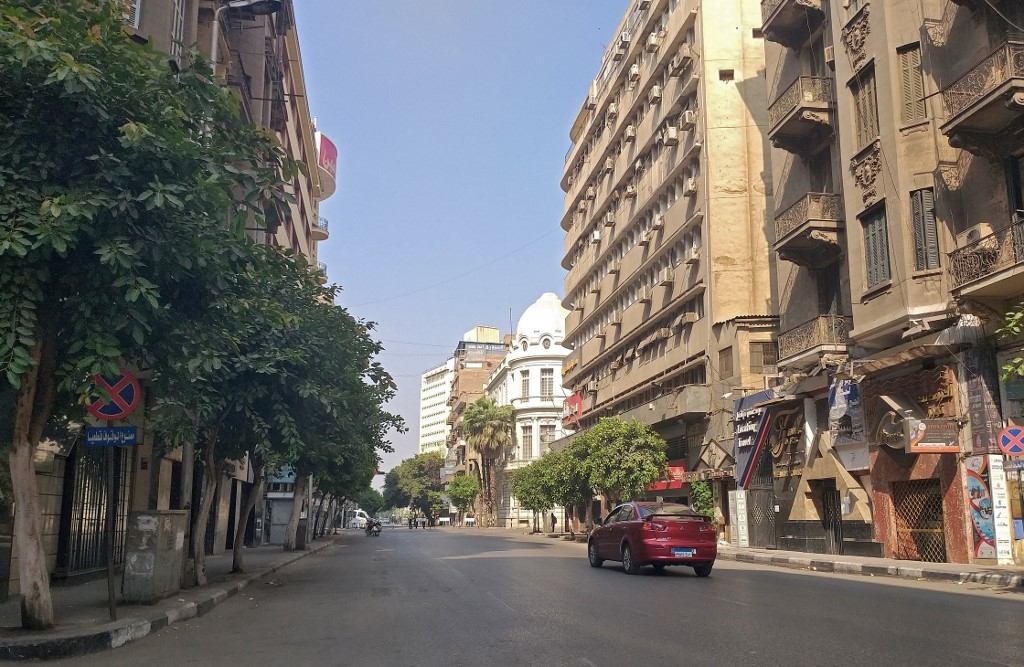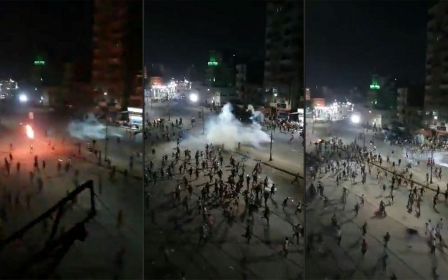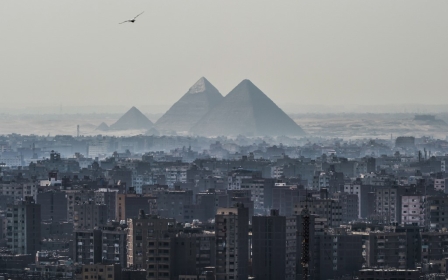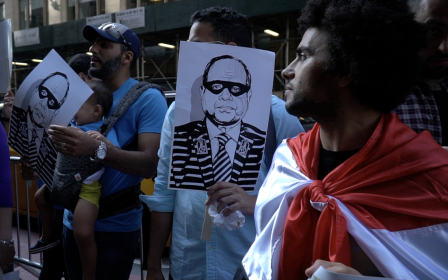Egypt crackdown: Anti-Sisi protesters face tear gas, beatings and roadblocks

Egyptian police used tear gas and birdshot to disperse anti-government protesters who took to the streets in defiance of a security crackdown that brought Cairo and other cities to a standstill on Friday.
Protests calling for the fall of President Abdel Fattah el-Sisi broke out soon after Friday prayers in several locations across the country - including Luxor, Qena and Sohag - for a second week in a row.
They came even after rights groups say more than 2,000 people, many of them under the age of 25, have been arrested in the past week, with the UN calling on Egyptian authorities to "radically change their approach" and immediately release those arrested solely for exercising their rights.
'If we were criminals, they would not treat us like this'
- Mohamed, protester in El Warraq
But by late Friday afternoon, there were reports from several locations of anti-government demonstrations that had been shut down by security forces, while a large pro-Sisi rally continued in the capital where streets, dotted with checkpoints and roadblocks, were largely empty.
On the island of El Warraq in the Giza governorate, Mohamed told Middle East Eye that a protest calling for Sisi's fall had started with around 100 worshippers immediately after Friday prayers, and grew as he and others marched around the area.
But the demonstrations were broken up when police started chasing the crowd. "They fired a lot of tear gas, and fired birdshot on us. If we were criminals, they would not treat us like this. Many kids choked on gas and fell," he said.
The police took at least six protesters and "beat the hell" out of one of them with their rifles, Mohamed said.
"We kept telling the police if anyone of us dies, it will be hell for them."
There were also local media reports of police firing shots in the air to disperse anti-Sisi protesters in Helwan governorate.
Capital crackdown
In Cairo, MEE correspondents reported that checkpoints and road blocks were in effect, including the blockage of all roads leading to Tahrir Square, with no sign of anti-government protests in the quiet streets.
Egypt’s interior ministry also instructed staff at major hospitals in the capital to report the names of people wounded during protests.
Staff at Kasr Al Ainy, one of Egypt's oldest hospitals, said they had received the message and that there was a police presence inside the hospital with ambulances being inspected as they came and went.
Several key metro stations leading to downtown Cairo were also reportedly shut "for maintenance", a familiar state procedure when protests are expected.
In the normally busy Ramses Street, a downtown thoroughfare with local shops, banks and flats leading to Tahrir Square, video posted on Friday showed a line of microbuses and pick-up trucks, with police officers standing by.
Late on Friday, an MEE correspondent reported that around 200 people had been arrested in the downtown Cairo area, despite no protests being reported in the area.
Amnesty tweeted that the lockdown was "preventing people from exercising their right to freedom of movement and peaceful assembly".
Meanwhile, upon his arrival to Cairo from the UN General Assembly, Sisi told reporters on Friday morning that there was nothing to worry about.
"There are no reasons for concern. Egypt is a strong country thanks to Egyptians," he said.
Rally near Rabaa
As anti-Sisi protests were shut down, pro-government rallies continued around Cairo, including a gathering in Nasr City at the Unknown Soldier Memorial near Rabaa Square.
"Our country is beautiful," participants chanted.
The site of the pro-Sisi rally holds historical significance. In 1981, it is where president Anwar Sadat was assassinated and, more recently, on 27 July 2013, it is where at least 95 supporters of then-deposed president Mohamed Morsi were killed by security forces.
According to Human Rights Watch, police and army forces killed at least 1,150 anti-coup protestors between July and August 2013 in what the rights group described as "crimes against humanity".
One of the attendees at the rally told MEE that organisers were handing out meals, and that the atmosphere was festive.
There were rumours, he said, that Mohamed Ramadan - a popular actor and singer who released a pro-Sisi rap this week, taking snipes at tycoon-turned-whistleblower Mohamed Ali - would eventually turn up.
Middle East Eye propose une couverture et une analyse indépendantes et incomparables du Moyen-Orient, de l’Afrique du Nord et d’autres régions du monde. Pour en savoir plus sur la reprise de ce contenu et les frais qui s’appliquent, veuillez remplir ce formulaire [en anglais]. Pour en savoir plus sur MEE, cliquez ici [en anglais].




